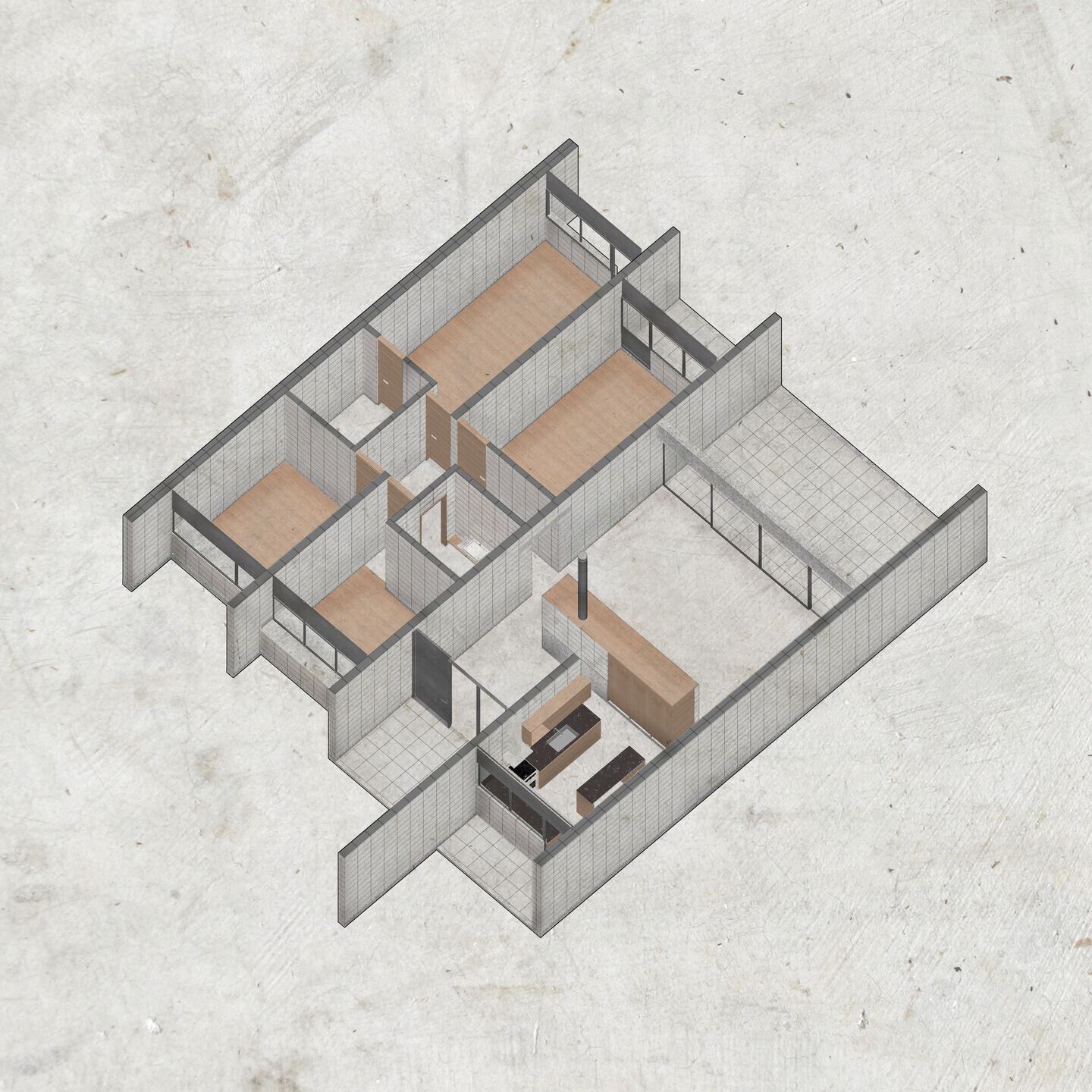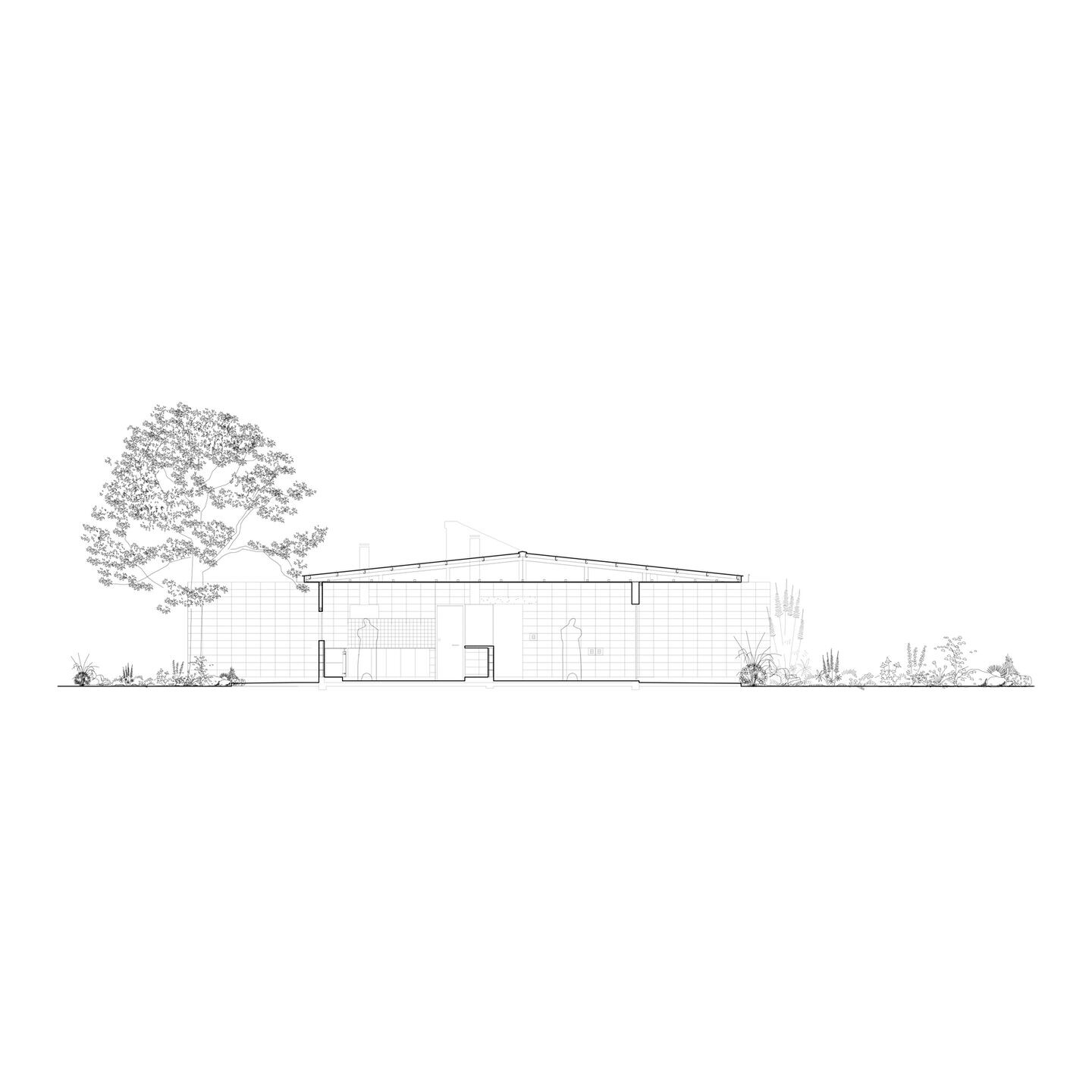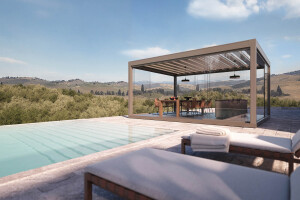The house is located in a residential neighborhood of the city of Sauce Viejo. This coastal city of fifteen thousand inhabitants has a very clear mix between a large agricultural industrial complex and houses on individual plots. Sauce Viejo is part of the urban conglomerate called Gran Santa Fe, formed by a group of satellite cities that surround the capital and where people find the possibility of building their own home, their own dreams.

The assignment was to project the house for Juan and Laura. A house that contemplates the future growth of the family but with a really tight budget, which means that we must work with imaginative solutions in the use of the materials that the clients had. They gave us the tools to build the space.The available plot is considered a construction between party walls, not very wide and very deep (12m x 50m) and, therefore, the first decision was to locate the house occupying the width of the lot in an intermediate position, creating an access garden through front and a private one behind.
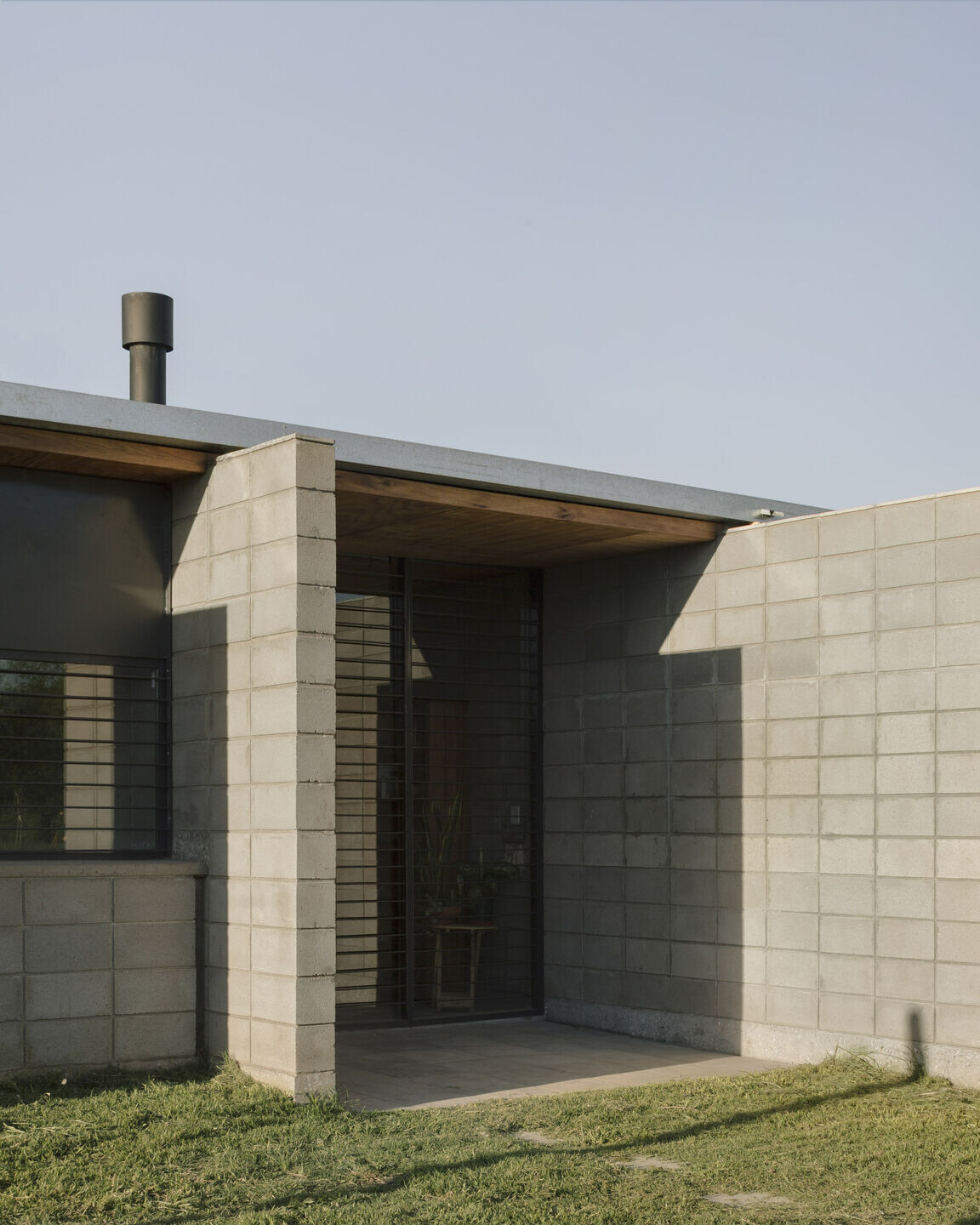
In this way, the architectural actions here are summarized in the construction of 4 cement block walls of 19x19x39cm, which are arranged longitudinally, moving or folding to solve the different spaces. As well as a metal cover that rests on them creating a shadow to live. A stereotomic architecture belongs to the earth and tectonics to the sky. Wall and roof.

The various uses must be resolved between walls and the location of the carpentry determines the diffuse limit between interior and exterior. In the access, a threshold is created to generate a distributor visually limited by the chimney that builds the center. Once this first limit is crossed, we discover the living-dining room of the house, with its complete opening to the rear garden, which is located bathed in the light of the Argentine southwest at sunset. When turning on this space, the kitchen and breakfast room are discovered, which turn their gaze on their own patio.
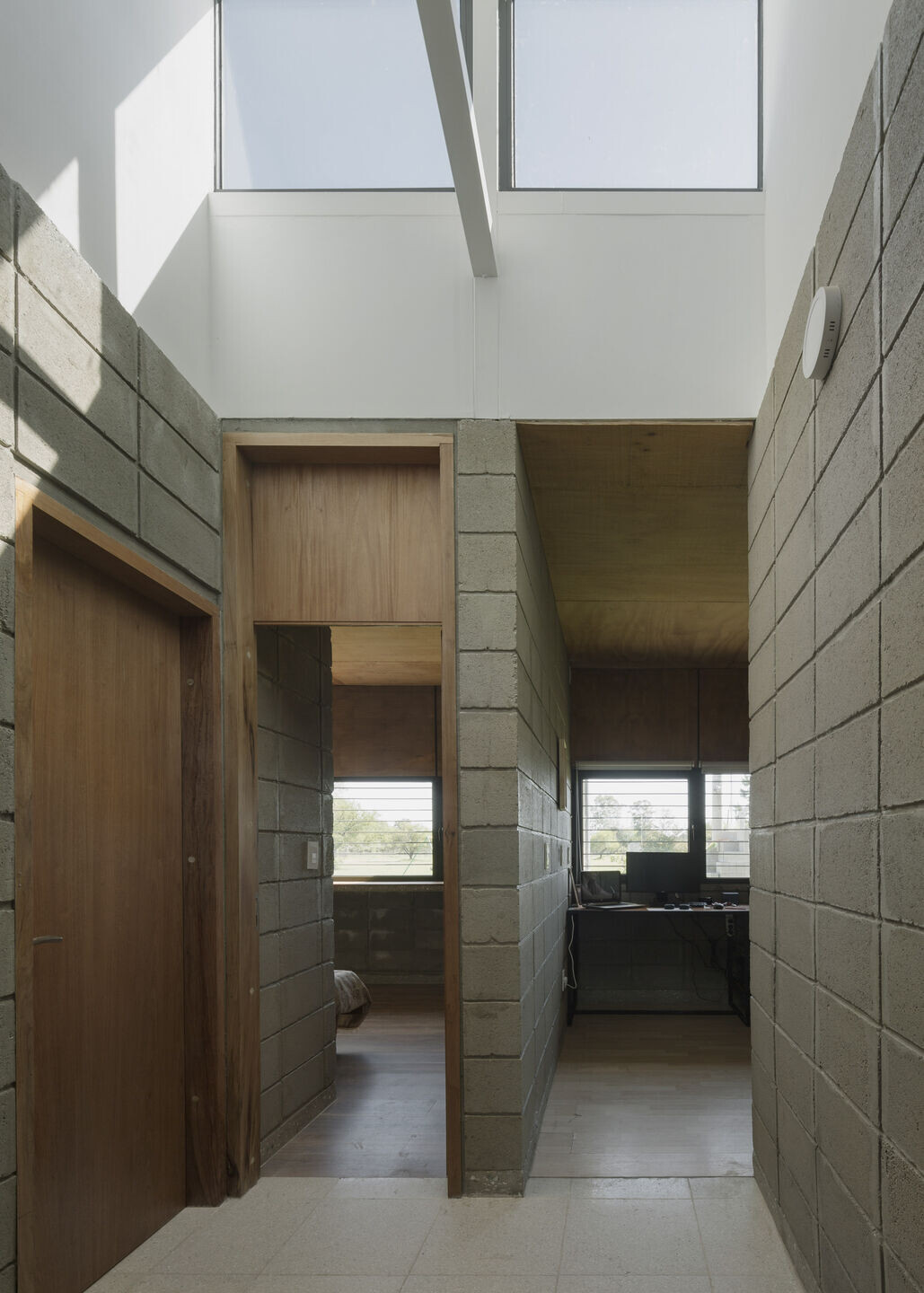
Crossing the hole that is located in the central wall, you access the room area of the house. A new distributor, which is bathed in the light of dawn, distributes us to the four bedroom and/or study spaces that are located between front and back walls. The bathrooms are resolved as folds in the walls and act by configuring a more intimate space.
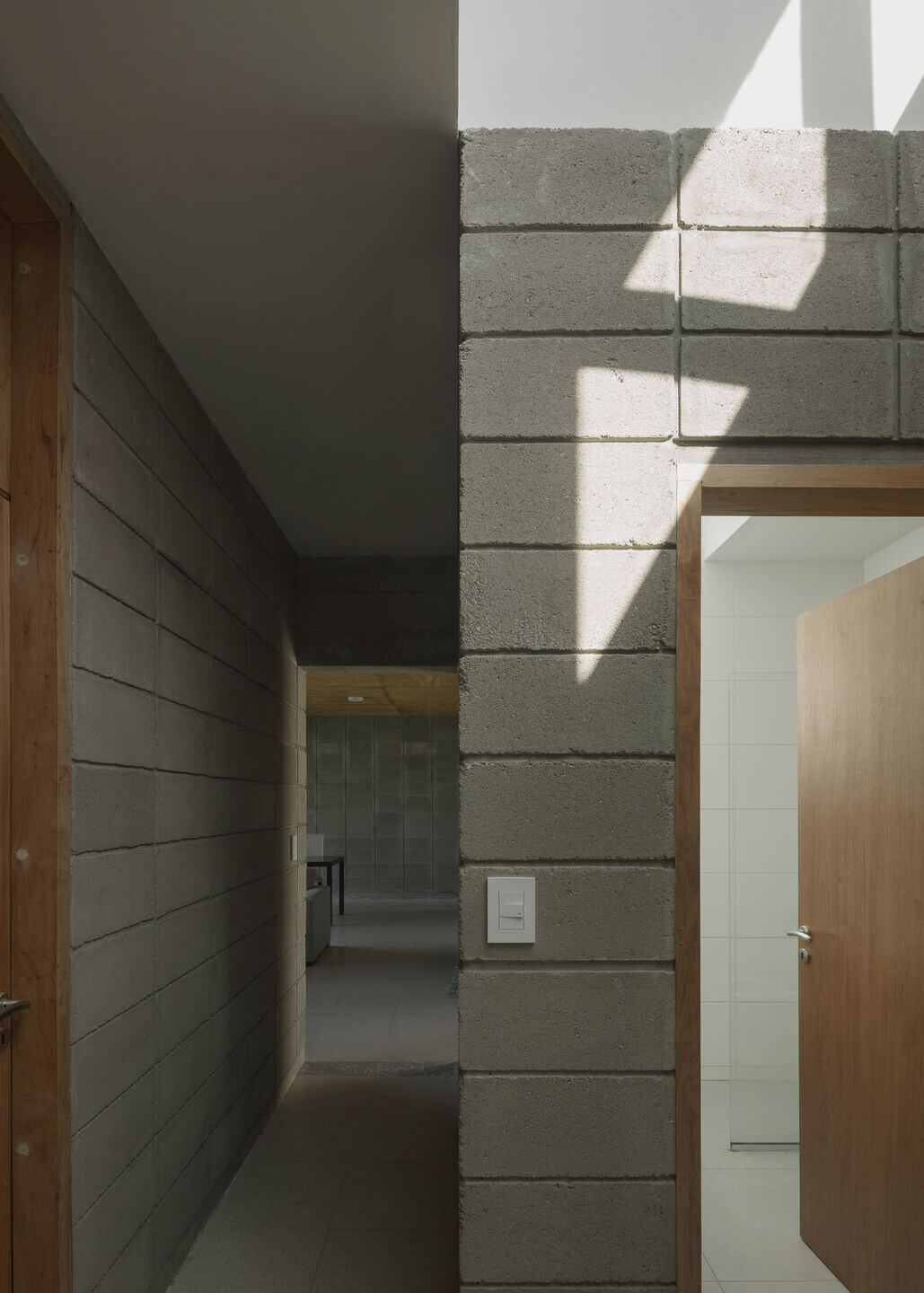
The house is built by stacking blocks, without rigging, testifying to its enclosing and formwork character of the concrete structure that it contains in its entrails. The metal roof is supported and braced to the internal concrete structure of the walls. It is resolved with two waters leading to these towards the outer limits of the house. In the bathrooms, the cover is folded to seek the sun and air from the east. In this way these rooms will be illuminated and ventilated. Bathroom spaces are built. The house recovers the typological and constructive solutions inherited from the anonymous agricultural industry of its surroundings. A construction with very cheap materials, which we use by hand, turning this anonymous construction into architecture rooted in the memory of its context.
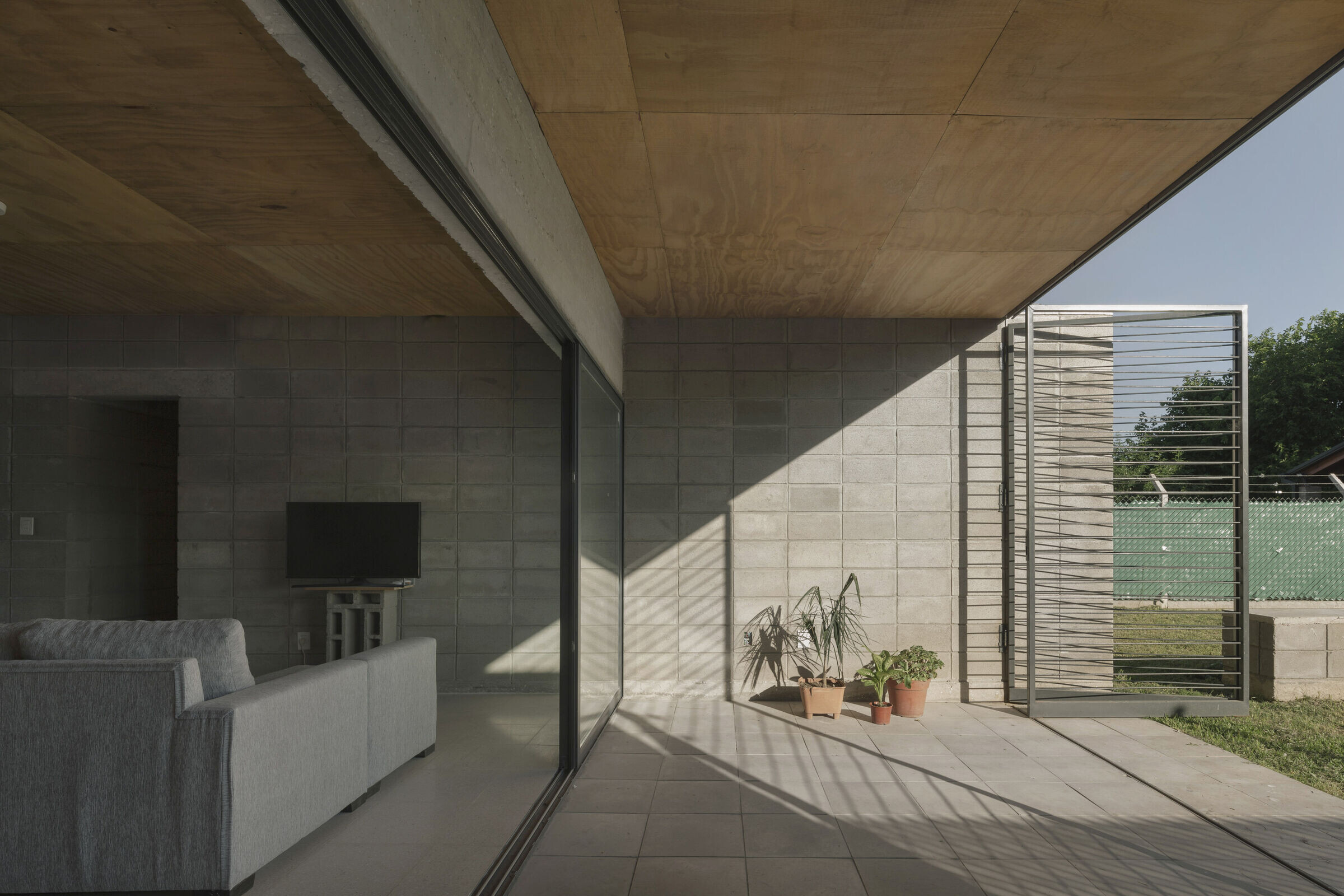

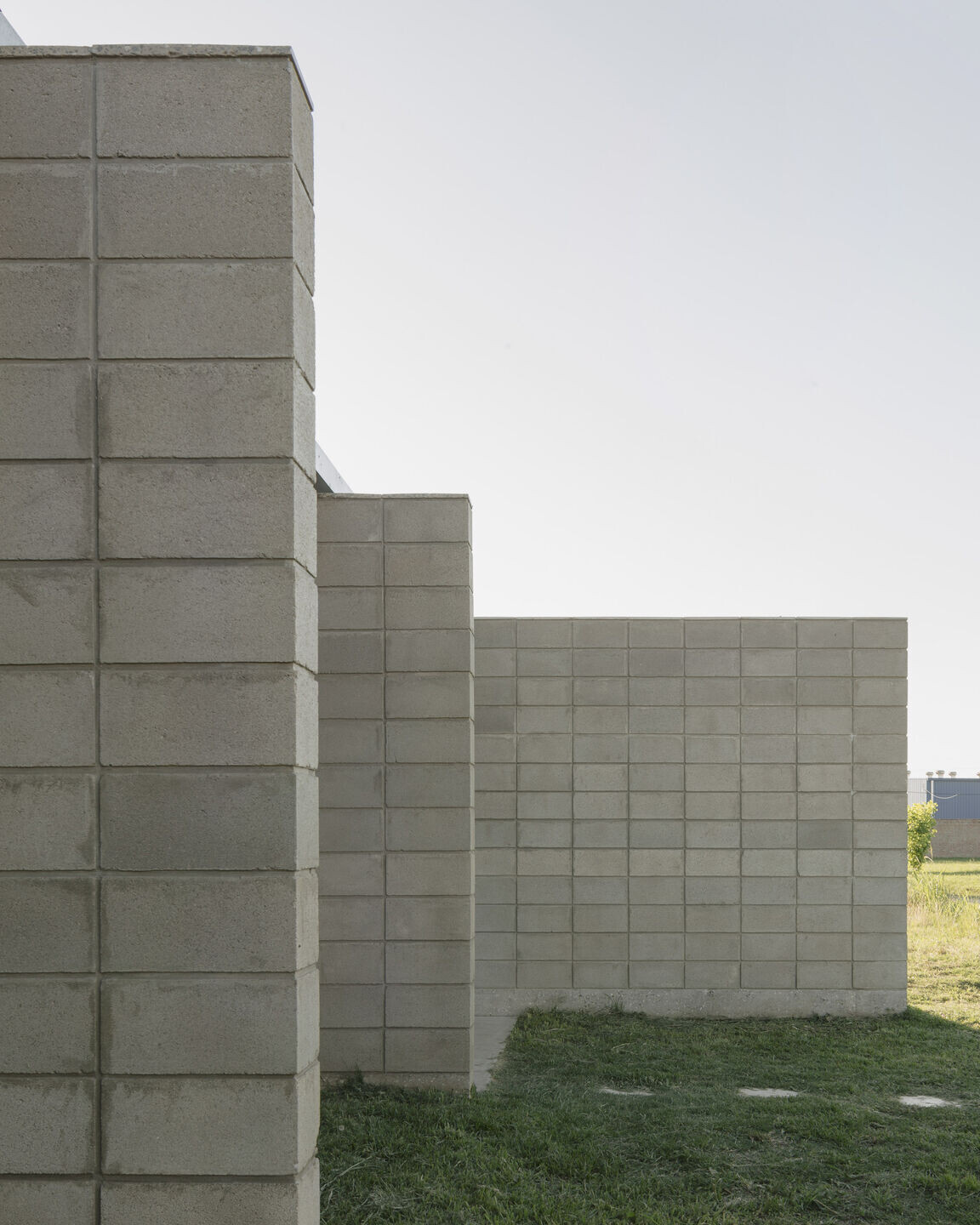
Team:
Architects: Atelier Atlantico
Lead Architects: German Muller Calace & Mario Galiana Liras
Collaborators: Axel Muller, Agustina Fabiny, Camila Guglielmone
Photographer: Federico Cairoli
